Publications
Articles, publications, books, tools and multimedia features from the U.S. Institute of Peace provide the latest news, analysis, research findings, practitioner guides and reports, all related to the conflict zones and issues that are at the center of the Institute’s work to prevent and reduce violent conflict.
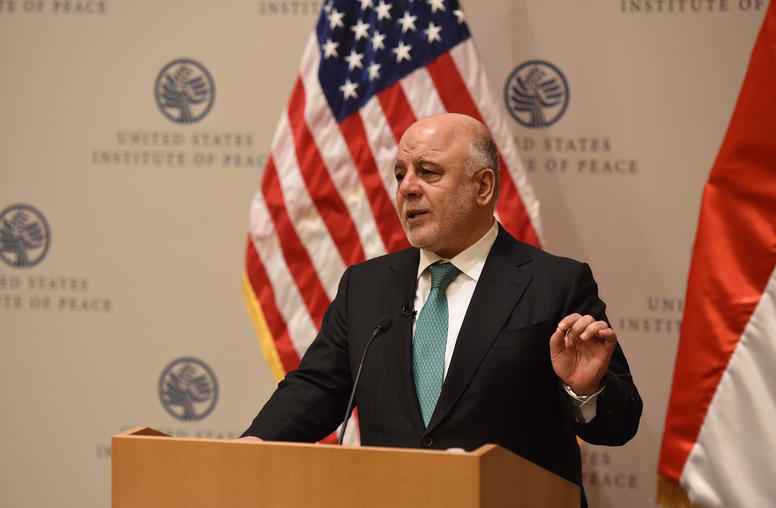
Iraqi Prime Minister Says Trump Offers Support
Iraqi Prime Minister Haider al-Abadi, speaking at the U.S. Institute of Peace after his first meeting with President Donald Trump, said the new U.S. administration is “prepared to do more” to fight terrorism than its predecessor, but he cautioned that military force alone won’t defeat ISIS. Abadi said his government is trying to gain the trust of the Iraqi people by reducing abuses by security forces, ensuring that areas recaptured from ISIS are stabilized and making the government more accountable.
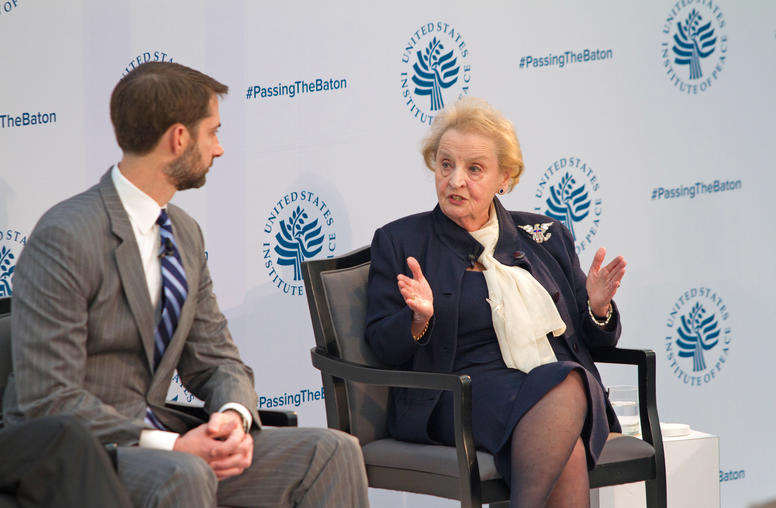
U.S. Braces for Tests to Foreign Policy (Video)
China, Russia, Iran, North Korea. Violent extremism, America’s global leadership, investing in stability. Those are some of the biggest issues facing the administration of President Donald Trump as it establishes its foreign and national security policies in the weeks and months ahead, according to former Secretary of State Madeleine Albright, other former officials and experts from the U.S. Institute of Peace.
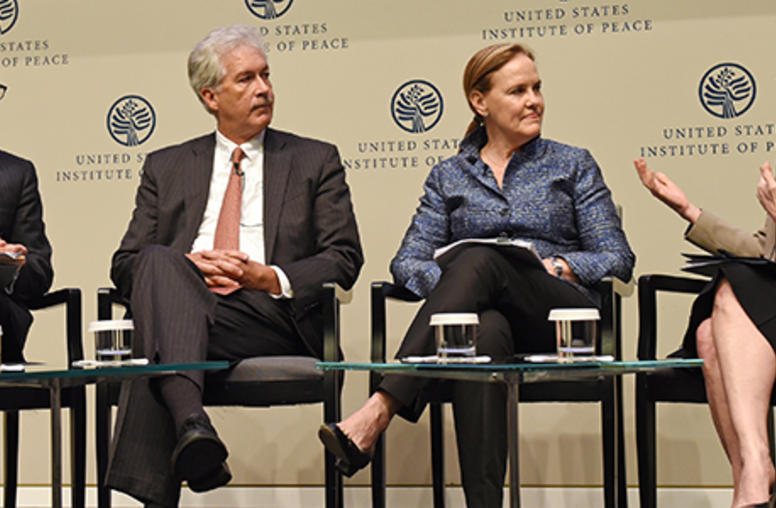
Burns, Flournoy, Lindborg Press Urgency of Fragile States
Three former high-ranking officials in the State Department, the Pentagon and the U.S. Agency for International Development (USAID) urged the next presidential administration to commit more attention and resources to preventing the kinds of violent conflicts that are roiling the Middle East and other regions today and spilling over into neighboring countries, Europe and the United States. Former Deputy Secretary of State Bill Burns, Under Secretary of Defense Michele Flournoy and USAID Assist...
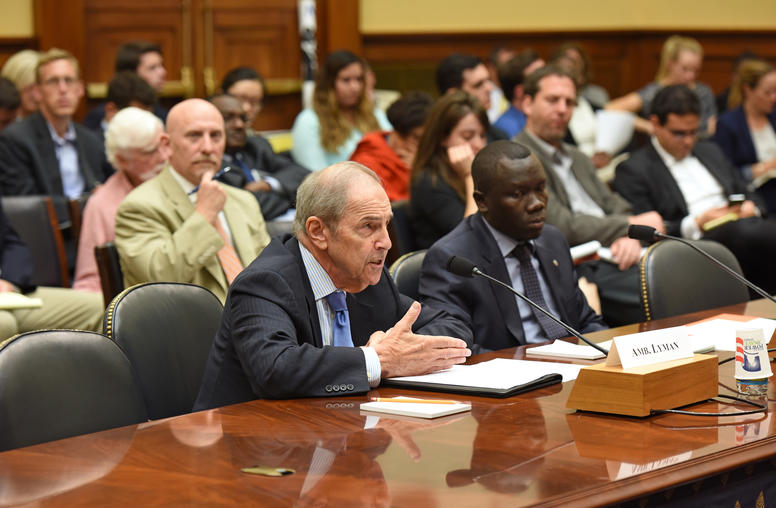
South Sudan War Calls for Firm Intervention, Lyman Says
A peace plan for South Sudan that was intended to end three years of fighting in the world’s newest nation has failed largely because it “depends on the cooperation of the very antagonists who brought about the current civil war,” former U.S. Special Envoy to Sudan and South Sudan Princeton Lyman told a House Foreign Affairs subcommittee today.
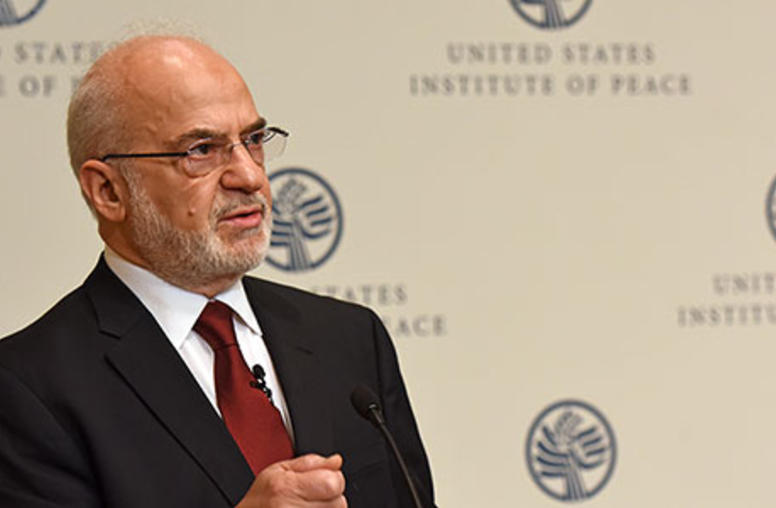
Iraqi Foreign Minister Appeals for Post-ISIS Aid
Iraqi Foreign Minister Ibrahim al-Jaafari and U.S. envoy Brett McGurk today emphasized the urgency of planning and financing Iraq’s recovery from the ISIS onslaught as areas the extremist group had controlled are recaptured more quickly than expected. The two spoke at the U.S. Institute of Peace in advance of an international conference of donors to Iraq convening in Washington tomorrow and a meeting the following day of the global coalition backing the fight.
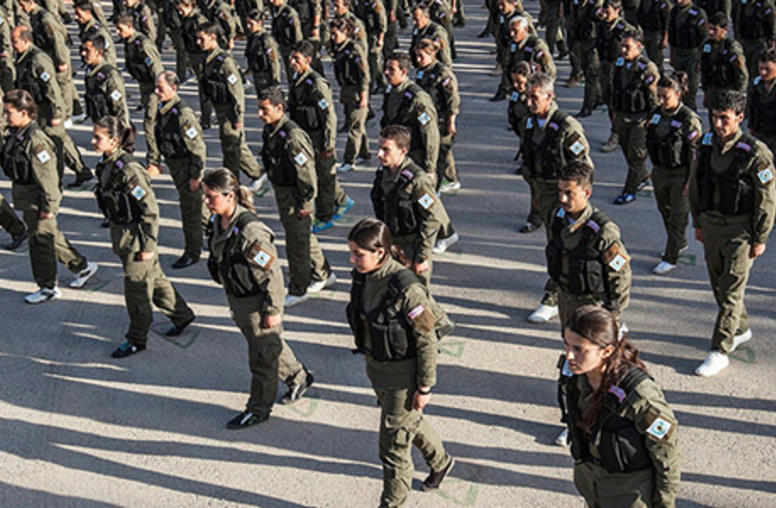
Middle East Security Suffers for Absence of Women
In the violent conflict tearing across the Middle East and North Africa, fully half of the pieces needed to complete the security puzzle may be missing almost entirely: women. As extremist groups and military forces parry with the weapons of war and politics, the pivotal role that women could play in restoring peace and security has largely been cast aside, as old-school thinking perpetuates the idea that gender equality is a problem for another day, according to experts and a new study just published by USIP.
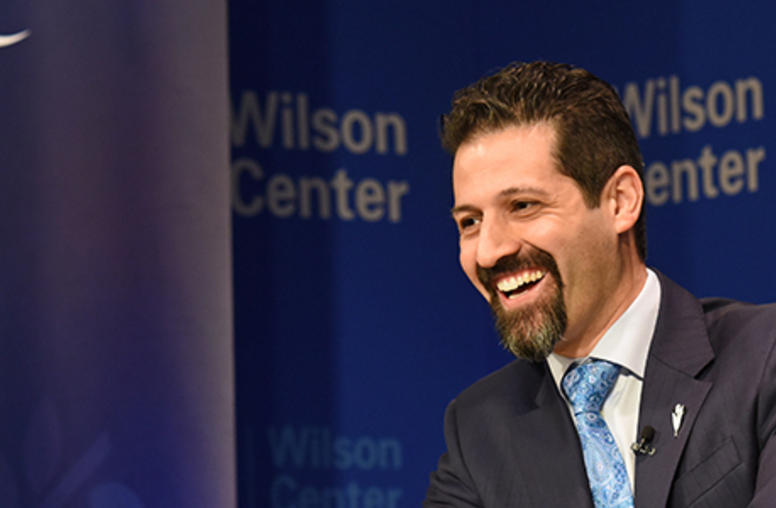
Iraq Operation to Recapture Mosul Needs Plan for Aftermath
The planning taking place to recapture Iraq’s second-largest city, Mosul, from the “Islamic State,” or ISIS, extremist group should involve not only meticulous military preparations but also careful thought to ensuring a peaceful aftermath is sustainable over the long term, said Qubad Talabani, the deputy prime minister of the country’s Kurdish region, which has helped lead the drive to end the extremist organization’s hold on vast swaths of territory. But the Kurdistan Regional Government (K...
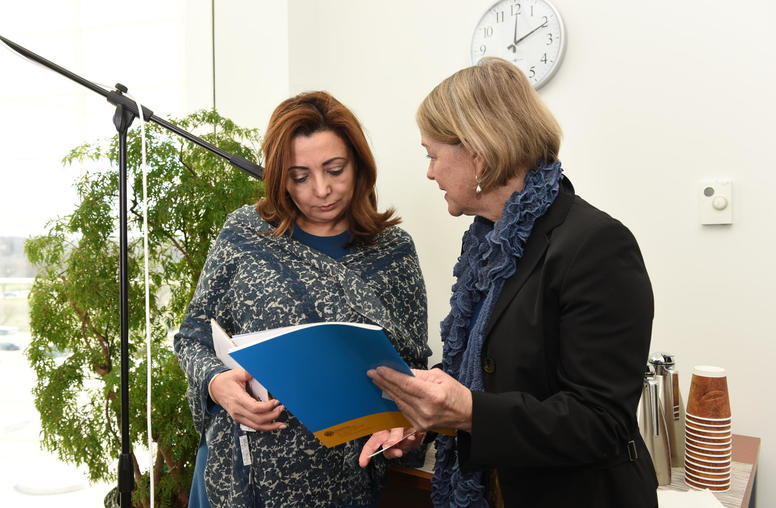
Group Leader in Nobel-Winning Quartet: Tunisia Needs Education Review for Jobs
The president of one of the four civil society organizations in the Nobel Prize-winning Tunisian National Dialogue Quartet said her country will need to make changes in its education system to reduce unemployment and adapt to an evolving economy. In a videotaped interview during a visit to USIP, Ouided Bouchamaoui talked about some of the many issues facing Tunisia during its still-precarious transition and about the status of women in society and the economy.
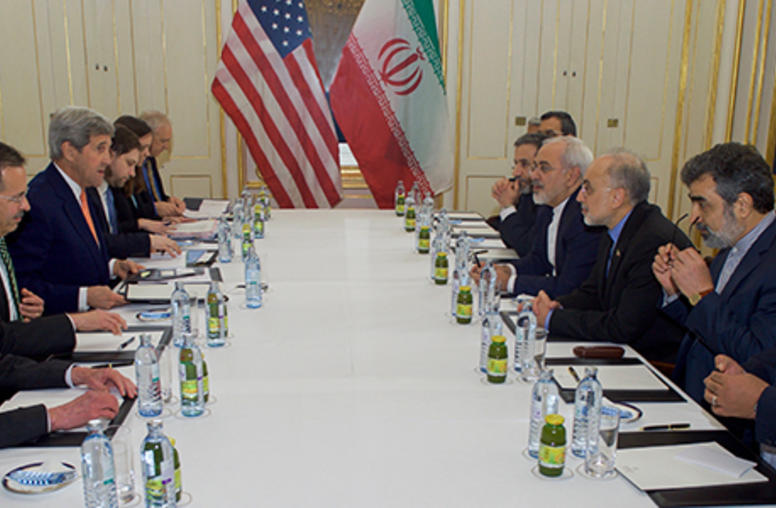
Q&A: Iran Nuclear Accord Milestone
In a historic milestone of the nuclear agreement reached in July between Iran and the world’s major powers, the United Nations’ nuclear watchdog certified on January 16 that Iran had complied with restrictions on its nuclear program and the international community lifted a range of sanctions imposed on the regime over the past decades. Daniel Brumberg, a special advisor at the U.S. Institute of Peace, considers the ramifications for the region and the world.
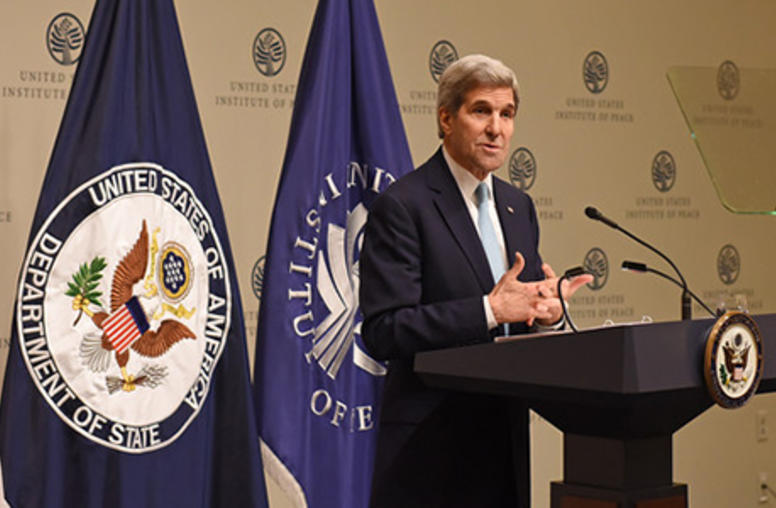
Kerry Says Assad Staying as Syrian Leader Is a "Non-Starter"
Secretary of State John Kerry, in an address at the U.S. Institute of Peace on the U.S. approach to the war in Syria, reinforced the administration’s firm opposition to allowing President Bashar al-Assad to remain in power under any resolution to the 4 ½-year conflict. Before leaving the U.S. today to resume talks on Syria in Vienna, Kerry pledged accelerated U.S. diplomatic and military efforts to end the fighting and defeat the self-styled “Islamic State” extremist group.